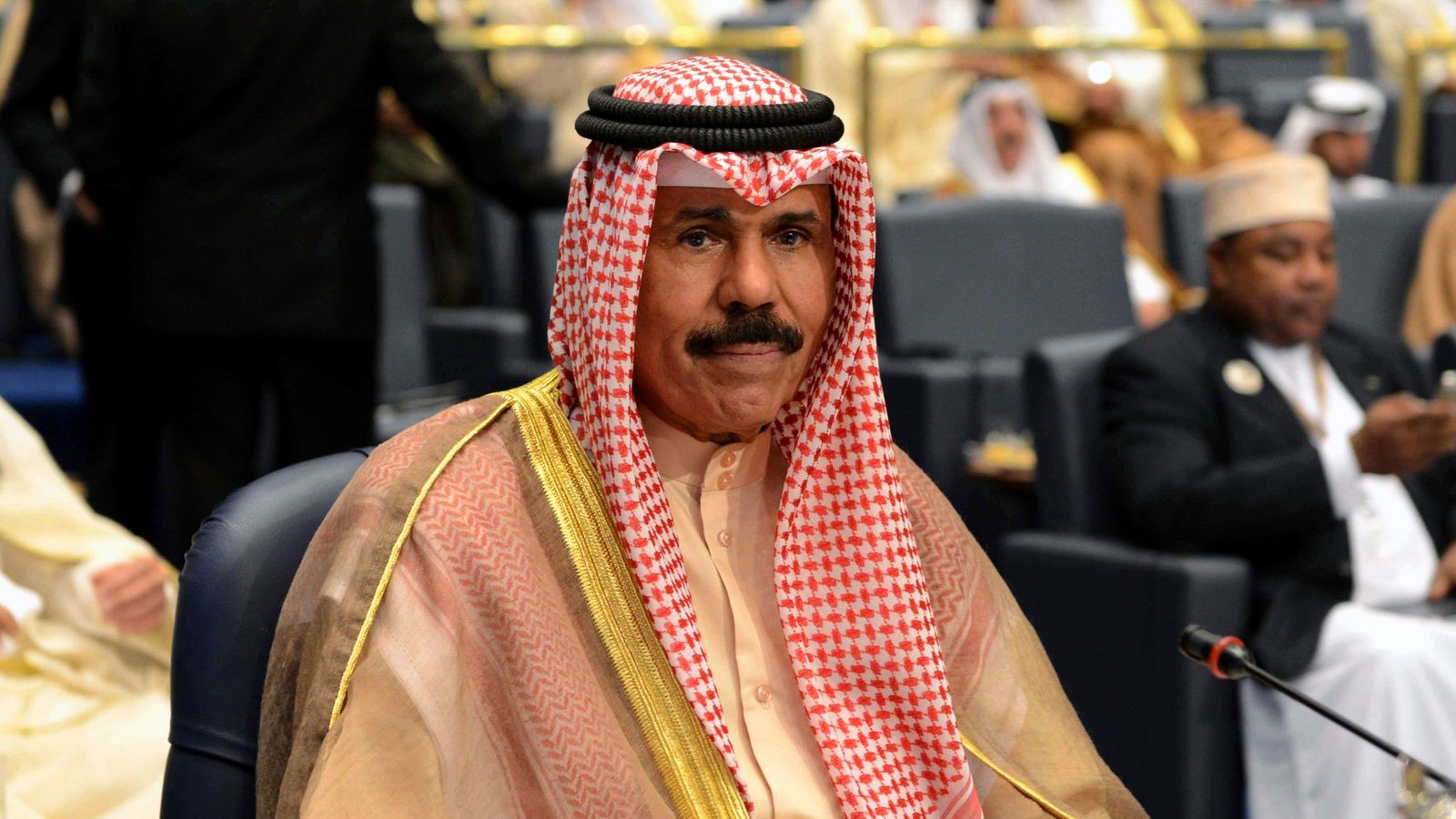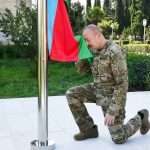Kuwait’s leader, Sheikh Nawaf al-Ahmad al-Sabah, has died aged 86, the country’s state media has announced.
Sheikh Nawaf had been Kuwait’s emir for three years, having taken over from his late half-brother, Sheikh Sabah al-Ahmad al-Sabah, in 2020.
His death comes after he was rushed to hospital with an unspecified illness in November. Authorities have yet to confirm the cause.
A statement aired by the minister of his emiri court, Sheikh Mohammed Abdullah al-Sabah, said: “With great sadness and sorrow, the Kuwaiti people, the Arab and Islamic nations and the friendly peoples of the world, we mourn the death of his highness Sheikh Nawaf al-Ahmad al-Jaber al Sabah, emir of the State of Kuwait.
“We pray to Allah Almighty that the deceased be blessed with his mercy and to be with him in his heavenly dwelling.”
Kuwait’s deputy ruler and Sheikh Nawaf’s half-brother, Sheikh Meshal al-Ahmad al-Jaber, 83, is in line to take over as the country’s ruler. He is currently its crown prince.
Kuwait, which is around the same size of the US state of New Jersey, has the world’s sixth-largest known oil reserves.
Read more:
Boat carrying migrants sinks in Channel
Al Jazeera cameraman dies after missile strike in Gaza
The nation of 4.2 million people has been a trusted US ally since the 1991 Gulf War expelled the occupying Iraqi forces of Saddam Hussein.
It hosts some 13,500 American troops in the country, as well as the forward headquarters of the US Army in the Middle East.
Sheikh Nawaf, who previously served as Kuwait’s interior and defence minister, was seen as a largely uncontroversial choice for emir when he took over in 2020, according to analysts.
Be the first to get Breaking News
Install the Sky News app for free
His term had been focused on domestic issues as Kuwait struggles through political disputes – including the overhaul of its welfare system – which prevented the sheikhdom from taking on debt.
He issued a long-awaited amnesty decree in 2021, pardoning and reducing the sentences of nearly three dozen Kuwaiti dissidents in a move aimed at defusing a major government standoff.
He also issued another just before his illness, aiming to resolve the political deadlock that saw Kuwait hold three separate parliamentary elections under his rule.






















